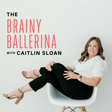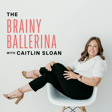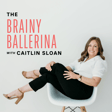
27. Teaching Ballet in the 21st Century with Deborah Engerman
Deborah Engerman is a ballet teacher, coach, choreographer and published author of Let’s Talk About Fifth: Teaching Ballet in the 21st Century. For over three decades, her students have gone on to dance with professional companies including American Ballet Theatre, Universal Ballet, Vienna Opera Ballet, Nashville Ballet, Barcelona Ballet Theatre, Complexions Contemporary Ballet as well as on Broadway.
Deborah is a passionate and caring educator and I am thrilled to share her wisdom with you today. My biggest takeaways from this episode included the importance of fundamentals, asking for help, and chasing after what you really want in life. I highly recommend her book and this conversation to every dance teacher who wants to become a more well-rounded and effective educator!
Key Moments:
- Early dance training [2:11]
- How Deborah chose to make teaching dance a career [5:20]
- Her very first teaching job [6:17]
- How Deborah’s teaching has evolved over the years [7:50]
- How she continues to learn as a veteran educator [16:10]
- Deborah’s secret to getting dancers to the professional level [21:30]
- The process of writing a book about the art of ballet [30:02]
- What Deborah hopes people will gain from reading her book [37:49]
- Her biggest piece of advice for dancers pursuing a career [41:14]
Connect with Deborah
DEBORAH’S WEBSITE: www.deborahengerman.com
FACEBOOK: facebook.com/DeborahEngermanBallet
INSTAGRAM: instagram.com/deborahengerman_balletteacher
Links and Resources:
Get your copy of The Ultimate Audition Guide
Join the Brainy Ballerina Book Club
Get your copy of Let’s Talk About Fifth: Teaching Ballet in the 21st Century (affiliate link)
Let’s connect!
My WEBSITE: thebrainyballerina.com
INSTAGRAM: instagram.com/thebrainyballerina
1-1 CAREER MENTORING: book your complimentary career call
Questions/comments? Email me at caitlin@thebrainyballerina.com


